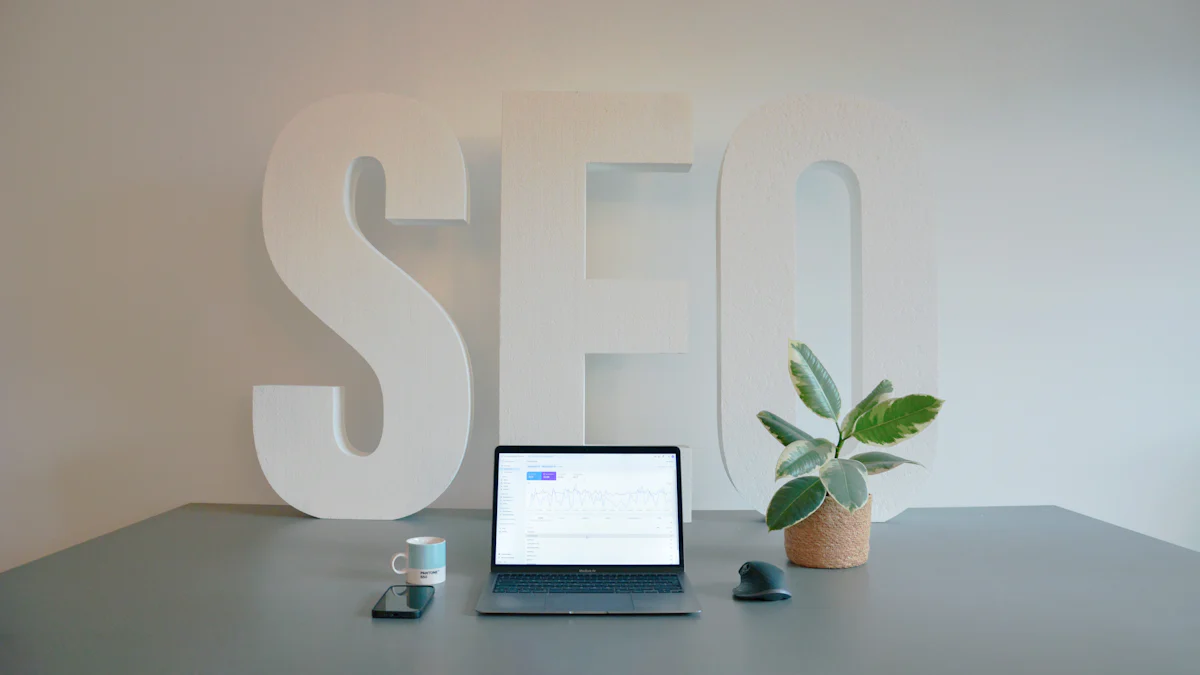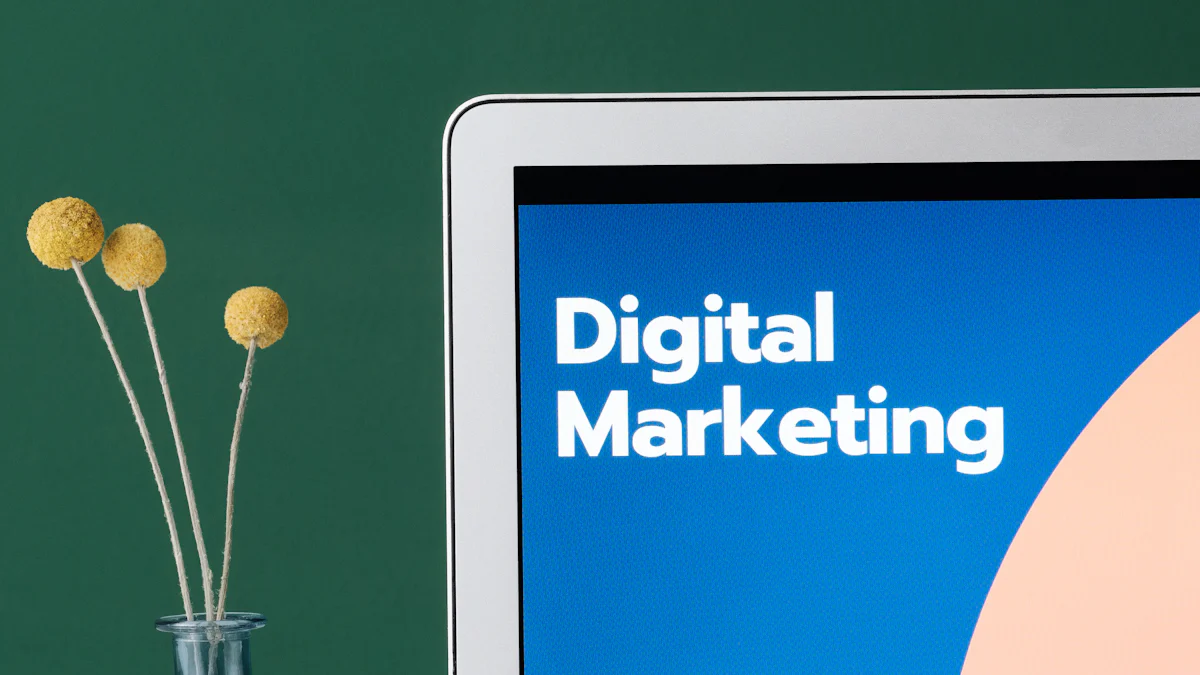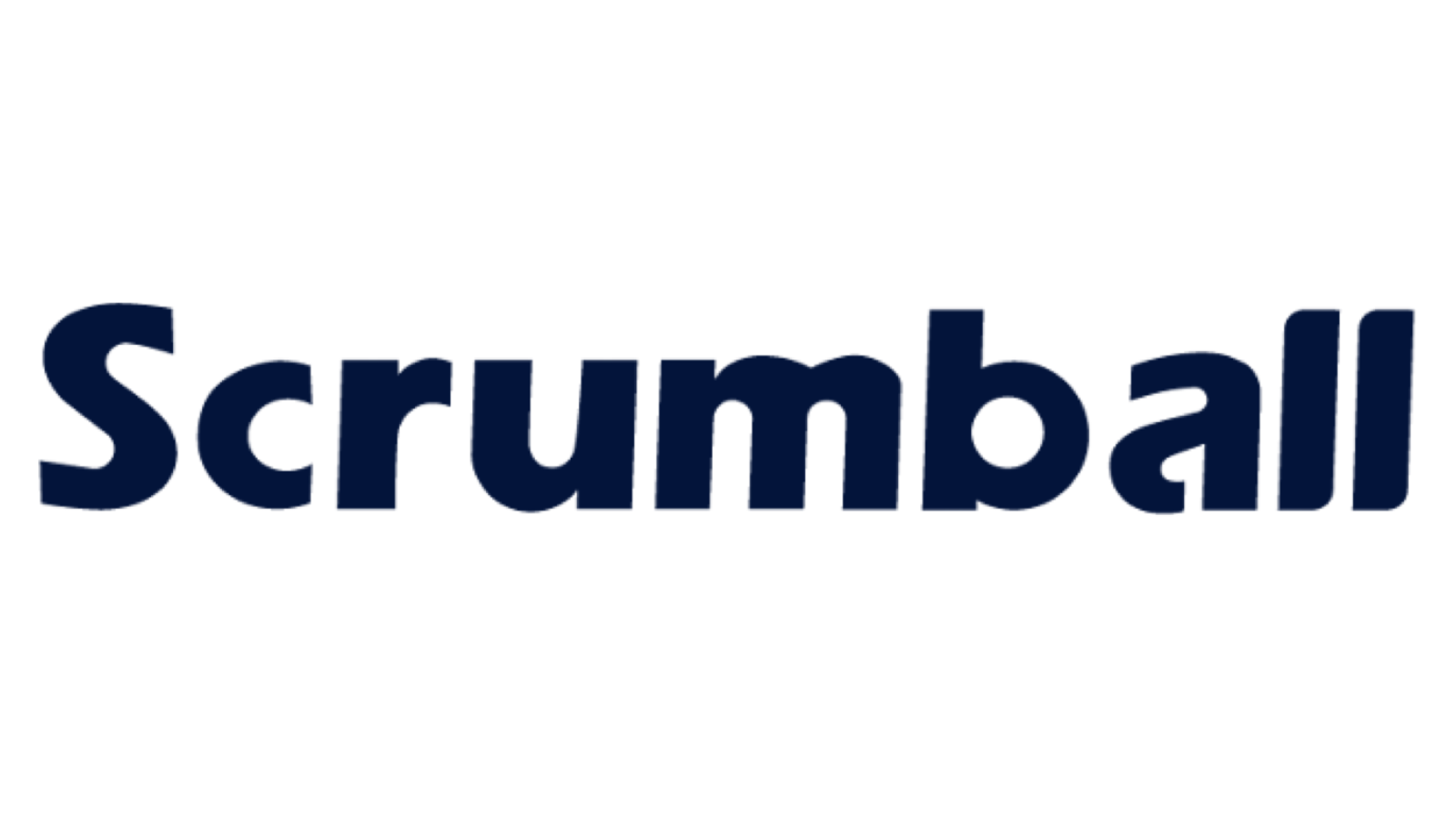2024 Comparison of Leading Marketing Automation Agencies

In 2024, marketing automation has become a cornerstone for businesses striving to stay competitive. Companies using digital marketing automation report remarkable benefits, including an 80% increase in leads and a $5.44 ROI for every dollar spent. A staggering 92% of businesses believe automation is essential for maintaining their edge. A marketing automation agency plays a pivotal role in helping you streamline marketing campaigns, enhance email marketing strategies, and achieve successful lead generation. By leveraging their expertise, you can reduce overhead, boost productivity, and drive measurable results.
Key Factors to Consider When Choosing a Marketing Automation Agency

When selecting a marketing automation agency, understanding the critical factors can help you make the right choice. Agencies differ in their offerings, and evaluating them based on specific criteria ensures you invest in the right partner for your business.
Features and Capabilities
Customization and flexibility of tools
The best marketing automation agencies provide tools that adapt to your unique business needs. Customization allows you to tailor workflows, campaigns, and analytics to align with your goals. For instance, SharpSpring offers robust automation tools with customizable pricing plans, making it ideal for businesses seeking flexibility. Similarly, Oracle Eloqua excels in providing advanced features like personalized email campaigns and A/B testing, which enhance lead nurturing and customer engagement.
Integration with existing systems (e.g., CRM, analytics)
Seamless integration with your current systems is a must-have feature. A marketing automation agency should ensure its tools work effortlessly with your CRM, analytics platforms, or other software. For example, Pardot, designed for Salesforce users, integrates directly with Salesforce CRM, simplifying lead management and ROI tracking. ActiveCampaign also stands out for its intuitive interface and CRM integration, making it a popular choice for small to mid-sized businesses.
Pricing and Value for Money
Transparent pricing models
Clear and upfront pricing helps you avoid unexpected costs. Agencies like Mailchimp and SharpSpring are known for their transparent pricing structures. Mailchimp’s straightforward plans cater to small and medium-sized businesses, while SharpSpring’s customizable options allow you to pay for only what you need.
Scalability for small, medium, and large businesses
Scalability ensures the agency can grow with your business. Whether you’re a startup or an enterprise, the right agency should offer solutions that match your size and complexity. HubSpot, for instance, provides scalable marketing automation platforms that support businesses of all sizes. Its features, such as email marketing and lead nurturing, adapt as your needs evolve.
Support and Customer Service
Availability of dedicated account managers
A dedicated account manager can make a significant difference in your experience with a marketing automation agency. They act as your point of contact, ensuring smooth communication and quick resolution of issues. Agencies like B2B Rocket and Pardot often assign account managers to guide you through the onboarding process and ongoing campaigns.
Training and onboarding support
Proper training and onboarding are essential for maximizing the potential of automation tools. Agencies offering comprehensive support help you and your team understand the platform’s features and capabilities. For example, HubSpot provides extensive training resources, including tutorials and live support, to ensure you can effectively use its email marketing and lead management tools.
Industry Expertise and Reputation
Experience in specific industries or niches
A marketing automation agency with expertise in your industry can provide tailored solutions that address your unique challenges. Agencies specializing in specific niches understand the intricacies of your market and can craft strategies that resonate with your audience. For example, SmartSites demonstrates its proficiency by delivering exceptional results for industries like e-commerce, healthcare, and real estate. Their ability to adapt automation tools to meet the demands of these sectors ensures you receive a customized approach.
When evaluating an agency, consider their track record in your field. Agencies like BSS Commerce, known for their Shopify Plus development expertise, excel in helping e-commerce businesses optimize their marketing efforts. Similarly, TopRank Marketing focuses on content-driven strategies, making them a top choice for industries prioritizing thought leadership and brand storytelling. Choosing an agency with relevant experience ensures they understand your goals and can implement effective automation strategies.
Client testimonials and case studies
Client testimonials and case studies offer valuable insights into an agency’s performance and reliability. These resources highlight real-world examples of how the agency has helped businesses achieve their marketing objectives. For instance, SmartSites showcases compelling case studies that demonstrate their ability to drive measurable results. These success stories provide a glimpse into their problem-solving skills and the impact of their strategies.
When researching agencies, ask for case studies or examples of successful campaigns. This step allows you to assess their expertise and determine if their approach aligns with your needs. Testimonials from satisfied clients also reveal the agency’s commitment to customer satisfaction. Agencies like POP emphasize their understanding of complex and time-intensive marketing challenges, which is often reflected in positive client feedback. By reviewing these materials, you can make an informed decision and choose a partner that delivers results.
Detailed Comparison of Leading Marketing Automation Agencies

Agency 1: SmartSites
Key Features
SmartSites stands out as one of the top marketing automation platforms in 2024. It offers a wide range of automation tools designed to enhance your email marketing campaigns and overall digital strategy. The platform integrates seamlessly with various marketing automation platforms, ensuring compatibility with your existing systems. SmartSites also provides advanced analytics to track campaign performance and optimize ROI.
Pros
- SmartSites specializes in delivering tailored solutions for industries like e-commerce, healthcare, and real estate.
- The agency has a proven track record of driving measurable results through its automation tools.
- You benefit from their user-friendly interface, which simplifies the process of managing campaigns.
Cons
- The pricing structure may not suit smaller businesses with limited budgets.
- Some users report a learning curve when first using their advanced features.
Agency 2: BSS Commerce
Key Features
BSS Commerce is recognized as a leading vendor for Shopify Plus development. It focuses on providing marketing automation solutions tailored to e-commerce businesses. The agency excels in integrating marketing automation platforms with Shopify stores, enabling you to streamline operations and improve customer engagement. Their tools also support email marketing, helping you nurture leads effectively.
Pros
- BSS Commerce offers deep expertise in e-commerce, making it ideal for Shopify users.
- The agency provides scalable solutions that grow with your business.
- Their automation tools simplify inventory management and customer segmentation.
Cons
- The agency’s services cater primarily to Shopify users, limiting its appeal to businesses on other platforms.
- Customization options may require additional investment.
Agency 3: TopRank Marketing
Key Features
TopRank Marketing focuses on content-driven strategies, making it a top choice for businesses prioritizing thought leadership. The agency uses marketing automation platforms to amplify your content marketing efforts. Their tools include advanced email marketing features, enabling you to deliver personalized messages to your audience. They also provide detailed analytics to measure the success of your campaigns.
Pros
- TopRank Marketing excels in creating content that resonates with your target audience.
- Their expertise in email marketing ensures higher engagement rates.
- The agency’s focus on analytics helps you make data-driven decisions.
Cons
- The agency’s services may not be suitable for businesses seeking broader automation solutions beyond content marketing.
- Pricing may be higher compared to other vendors offering similar services.
Agency 4: Salesforce Pardot
Key Features
Salesforce Pardot ranks among the top marketing automation platforms, offering a suite of tools tailored for B2B businesses. Its features focus on lead management, email marketing, and ROI tracking. Pardot integrates seamlessly with Salesforce CRM, enabling you to align your sales and marketing efforts. The platform provides advanced analytics, helping you measure campaign performance and make data-driven decisions. With automation capabilities like lead scoring and nurturing, Pardot ensures you can target prospects effectively.
Pros
- Pardot excels in CRM integration, especially for businesses already using Salesforce.
- The platform offers robust lead management tools, including lead scoring and segmentation.
- Its advanced analytics provide detailed insights into campaign performance.
- You can automate repetitive tasks, saving time and improving efficiency.
Cons
- The pricing structure may not suit small businesses or startups with limited budgets.
- Some users find the interface less intuitive compared to other leading vendors.
- The platform focuses heavily on B2B, which may not align with all business models.
Agency 5: HubSpot Marketing Hub
Key Features
HubSpot Marketing Hub stands out as one of the top marketing automation tools, offering an all-in-one solution for businesses of all sizes. It combines email marketing, CRM, and sales tools into a single platform, making it ideal for cross-functional teams. HubSpot’s native integrations with its own CRM, CMS, and customer service tools ensure a seamless experience. The platform also includes features like automated workflows, personalized email campaigns, and detailed reporting, helping you optimize your marketing strategies.
Pros
- HubSpot provides an integrated approach, combining sales and marketing tools for better collaboration.
- The platform’s user-friendly interface simplifies campaign management.
- Its scalability makes it suitable for small businesses and large enterprises alike.
- HubSpot offers extensive training resources, ensuring you can maximize its potential.
Cons
- The cost of advanced features may be high for smaller businesses.
- Some users report limitations in customization compared to other marketing automation platforms.
- The platform’s focus on integration may require you to adopt other HubSpot tools for the best experience.
Step-by-Step Guide to Selecting the Right Marketing Automation Agency
Choosing the best marketing automation agency requires a clear and systematic approach. This fully updated guide will walk you through each step, ensuring you make an informed decision that aligns with your business goals.
Assessing Your Business Needs
Identifying your marketing goals
Start by defining what you want to achieve with marketing automation. Are you focusing on lead nurturing, improving customer engagement, or streamlining lead management? Clear goals help you identify the features and services you need. For example, if lead nurturing is your priority, look for agencies offering advanced automation tools that support personalized campaigns.
Determining your budget and resources
Evaluate your financial capacity and available resources. Determine how much you can allocate to marketing automation services without straining your budget. Consider the size of your team and their technical expertise. If your team lacks experience with automation tools, prioritize agencies that provide training and onboarding support.
Researching and Shortlisting Agencies
Evaluating agency portfolios and case studies
Review the portfolios and case studies of potential agencies. Look for examples of their work in your industry or similar niches. Case studies reveal how they’ve helped businesses achieve measurable results. For instance, an agency with a strong track record in lead management might be ideal if you aim to optimize your sales funnel.
Comparing features and pricing
Create a comparison chart to evaluate the features and pricing of different agencies. Focus on how well their offerings align with your goals. Agencies with transparent pricing models and scalable solutions often provide better long-term value. Ensure the agency’s automation tools integrate seamlessly with your existing systems to avoid compatibility issues.
Conducting Demos and Consultations
Questions to ask during consultations
Prepare a list of questions to ask during consultations. Inquire about their experience in your industry, the customization options they offer, and the level of support they provide. Ask how their automation tools can enhance customer engagement and streamline your workflows. This step helps you gauge their expertise and suitability for your business.
Testing the usability of tools
Request a demo to test the usability of their tools. Pay attention to the interface, ease of navigation, and available features. A user-friendly platform ensures your team can adopt it quickly. During the demo, explore how the tools handle tasks like lead nurturing and campaign tracking. This hands-on experience helps you assess whether the platform meets your needs.
Making the Final Decision
Aligning agency capabilities with business goals
To make the right choice, you must ensure the agency’s capabilities align with your business goals. Start by revisiting your marketing objectives. Whether you aim to improve lead generation, enhance customer engagement, or streamline workflows, the agency should offer tools and strategies tailored to these needs. For example, if your goal is to boost conversion rates, prioritize agencies that provide advanced analytics and personalized campaign features.
Evaluate how well the agency’s expertise matches your industry. Agencies with a proven track record in your niche often understand the unique challenges and opportunities you face. They can craft strategies that resonate with your target audience. For instance, an agency specializing in e-commerce might excel at integrating automation tools with platforms like Shopify, ensuring seamless operations.
Additionally, consider the agency’s ability to adapt to your evolving needs. Marketing strategies require constant refinement to stay effective. Choose a partner that offers scalable solutions and regularly updates their processes to align with your growth. This ensures your campaigns remain relevant and impactful over time.
Negotiating contracts and service agreements
Once you’ve identified the right agency, focus on negotiating a contract that protects your interests. Begin by reviewing the scope of services. Ensure the agreement clearly outlines the deliverables, timelines, and performance metrics. This transparency helps you avoid misunderstandings and ensures accountability.
Pay close attention to pricing structures. Look for agencies with transparent pricing models that align with your budget. If the agency offers tiered plans, confirm that the services included in each tier meet your requirements. For example, some agencies may charge extra for advanced features like CRM integration or detailed analytics. Clarify these costs upfront to prevent unexpected expenses.
Discuss the terms of termination and flexibility. A good contract should allow you to adjust services as your needs change. For instance, if you decide to scale up your campaigns, the agency should accommodate this without excessive fees. Similarly, ensure the agreement includes provisions for ending the partnership if the agency fails to meet expectations.
Finally, establish a communication plan. Regular updates and performance reviews are essential for a successful collaboration. Agree on how often you’ll receive reports and what metrics will be tracked. This keeps both parties aligned and ensures the agency remains focused on achieving your goals.
Choosing the right marketing automation agency in 2024 can significantly impact your business's success. By understanding your goals and evaluating agencies based on their expertise, you ensure a partnership that aligns with your needs. This blog has highlighted key factors like features, pricing, and support while reviewing top marketing automation platforms to simplify your decision-making process. Take the time to research, test automation tools, and assess how agencies can enhance your email marketing strategies. A well-informed choice will help you leverage automation for growth and long-term success.
FAQ
What is marketing automation?
Marketing automation refers to the use of software and tools to streamline, automate, and measure marketing tasks and workflows. It helps businesses improve efficiency, nurture leads, and deliver personalized experiences to customers. By automating repetitive tasks like email campaigns, social media posting, and lead management, you can focus on strategy and creativity.
Why should I consider hiring a marketing automation agency?
A marketing automation agency brings expertise and experience to your business. They help you implement the right tools, create effective strategies, and optimize campaigns for better results. Agencies also provide support with integration, training, and analytics, ensuring you get the most out of your investment. If you lack in-house expertise or resources, partnering with an agency can save time and deliver measurable ROI.
How do I know if my business needs marketing automation?
If you struggle with managing leads, personalizing customer interactions, or tracking campaign performance, marketing automation can help. Businesses of all sizes benefit from automation by improving efficiency and scaling their efforts. For example, if you spend too much time on manual tasks like sending emails or updating customer data, automation tools can simplify these processes.
What are the key features to look for in a marketing automation platform?
When choosing a platform, focus on features that align with your goals. Look for tools that offer email marketing, lead nurturing, CRM integration, analytics, and workflow automation. Customization and scalability are also important. Platforms like HubSpot and Salesforce Pardot provide robust features that cater to businesses of various sizes and industries.
How much does marketing automation typically cost?
The cost varies depending on the platform and services you choose. Some tools, like Mailchimp, offer affordable plans for small businesses, while others, like Salesforce Pardot, cater to larger enterprises with higher budgets. Agencies may charge additional fees for setup, training, and ongoing support. Always evaluate pricing models and ensure they align with your budget and needs.
Can marketing automation work for small businesses?
Yes, marketing automation works well for small businesses. Many platforms offer scalable solutions designed for startups and smaller teams. Tools like ActiveCampaign and Mailchimp provide user-friendly interfaces and affordable plans, making them ideal for small businesses looking to streamline their marketing efforts without breaking the bank.
How do I measure the success of marketing automation?
You can measure success by tracking key performance indicators (KPIs) such as lead conversion rates, email open rates, and ROI. Analytics tools within marketing automation platforms provide insights into campaign performance. Regularly reviewing these metrics helps you identify areas for improvement and ensures your strategies align with your goals.
What industries benefit the most from marketing automation?
Marketing automation benefits a wide range of industries, including e-commerce, healthcare, real estate, and B2B services. For example, e-commerce businesses use automation to personalize customer experiences and manage inventory. B2B companies leverage tools like Salesforce Pardot to nurture leads and align sales and marketing efforts. The flexibility of automation makes it valuable across various sectors.
Where can I learn more about marketing automation?
You can explore detailed resources on marketing automation through blog posts and guides. For example, check out this guide on marketing automation for beginners or this article on why marketing automation is essential. Additionally, visit Demodia’s marketing automation page for comprehensive insights.
What are some common misconceptions about marketing automation?
One common misconception is that marketing automation replaces human effort. In reality, it complements your team by handling repetitive tasks, allowing you to focus on strategy and creativity. Another myth is that automation is only for large businesses. Many platforms cater to small and medium-sized businesses, offering affordable and scalable solutions.
See Also
15 Essential Influencer Marketing Platforms for 2024 Success
Key Influencer Marketing Statistics to Enhance Your Strategy
Must-Watch Influencer Marketing Trends for 2024
20 Crucial Influencer Marketing Statistics Every Marketer Needs

